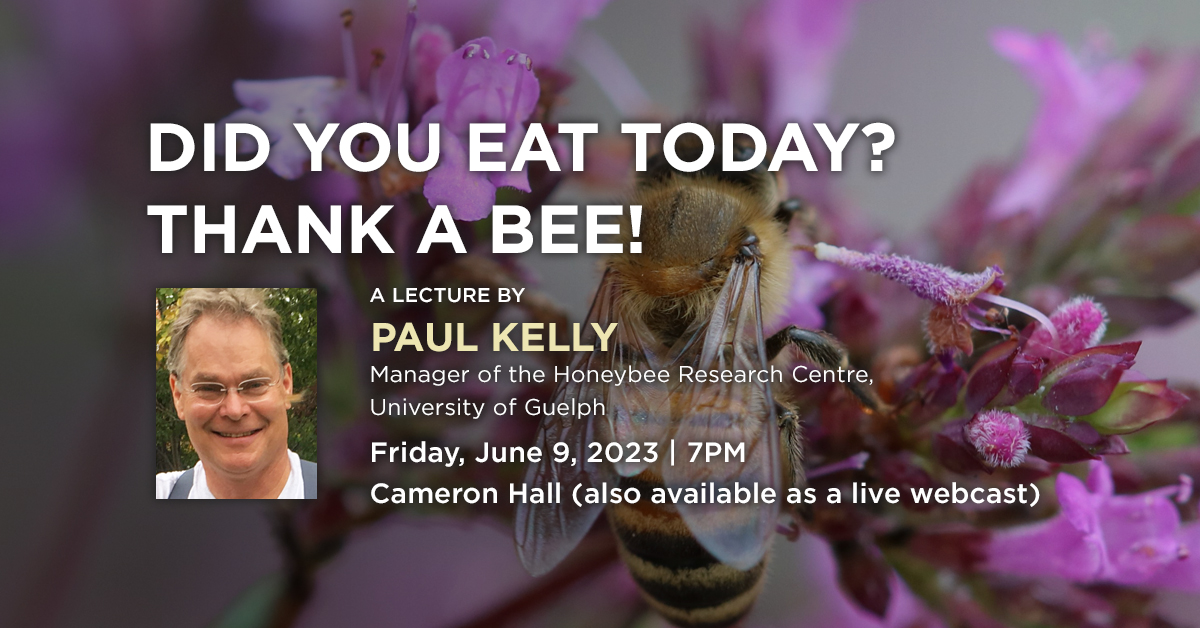
- This event has passed.
Did you eat today? Thank a Bee!

Donations at the door or when you watch online are voluntary and only partially cover program costs. If you agree that continuing education is worth the investment, We’d love to hear from you.
A new browser tab will open the Yorkminster Park Canada Helps donation page, please select YP Speakers Series from the dropdown menu.
Honey bees play a vital role in agriculture through the pollination of food crops. One third of the food we eat is pollinated by bees. Honey bees provide 80% of this service – native bees provide the rest. Did you know there are 423 species of native bees living in Ontario? They are also vitally important as they pollinate many native plants. Hummingbirds and some bat species pollinate too! Honey bees face numerous health challenges and the role of the University of Guelph’s Honey Bee Research Centre (HBRC) is to help beekeepers keep their bees healthy. The centre conducts hive health studies and trains beekeepers on a global scale. In this presentation Paul Kelly will outline the challenges bees face, survey the research and education activities of the HBRC, and let us know how we can help them help bees.
This lecture is a live, in-person event in Cameron Hall. You do not need to pre-register to attend – just show up.
BIOGRAPHY:
Paul Kelly has managed the Honey Bee Research Centre at the University of Guelph for the past thirty five years. His primary role at the centre is to manage honey bee colonies for research and teaching purposes. He provides research support for hive health science, training for students and beekeepers, coordinates and teaches beekeeping courses, conducts facility tours for the general public and hasn’t stopped talking about bees since taking his first apiculture course in 1980!

